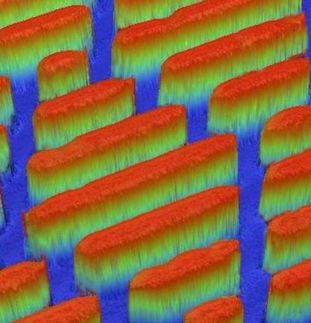Galapagos discovers novel class of antibiotics
First candidate antibiotic is effective against all tested MRSA strains
Advertisement
Galapagos NV announced that it has discovered an entirely new class of antibiotics. The Company has selected a candidate drug that shows strong activity against all tested drug resistant Staphylococcus aureus, including hospital and community acquired MRSA strains.
Bacterial infections that have become resistant to all existing antibiotics pose a pressing healthcare problem because treatment options for patients become very limited. MRSA is the best known example: a potentially life-threatening infection that occurs most frequently among patients in hospitals. The novel Galapagos candidate antibiotic shows strong activity against all tested drug resistant bacteria.
This newly discovered antibiotic works by inhibiting the target DNA pol III alpha, an enzyme present in all bacteria and essential for their growth; this target is absent in humans. The novel mode of action - inhibition of DNA pol III alpha - may be used to explore a variety of novel antibiotics, targeting bacteria for which resistance to current antibiotics has emerged.
Using this novel target, Galapagos has selected a first candidate antibiotic, CAM-1, to enter drug development. CAM-1 was tested against more than 250 different bacterial strains and effectively killed 100% of all drug resistant Staph. aureus, including MRSA. CAM-1 shows better efficacy than standard antibiotics, as shown by in vivo bacterial infection models. Galapagos aims to enter the clinic in the first quarter 2014, with a Proof of Concept study thereafter. This novel antibiotic program, including all compounds targeting MRSA, is fully proprietary to Galapagos.
"Selection of a candidate antibiotic in our MRSA development program is an important step toward realizing the full potential of our unique anti-bacterial program," said Dr Piet Wigerinck, Chief Scientific Officer of Galapagos. "Our antibiotics have a novel mode of action which brings all tested MRSA strains to a complete halt. Combined with a diagnostic test, these compounds could bring a real solution to MRSA infections."
Organizations
Other news from the department research and development

Get the life science industry in your inbox
By submitting this form you agree that LUMITOS AG will send you the newsletter(s) selected above by email. Your data will not be passed on to third parties. Your data will be stored and processed in accordance with our data protection regulations. LUMITOS may contact you by email for the purpose of advertising or market and opinion surveys. You can revoke your consent at any time without giving reasons to LUMITOS AG, Ernst-Augustin-Str. 2, 12489 Berlin, Germany or by e-mail at revoke@lumitos.com with effect for the future. In addition, each email contains a link to unsubscribe from the corresponding newsletter.




























































